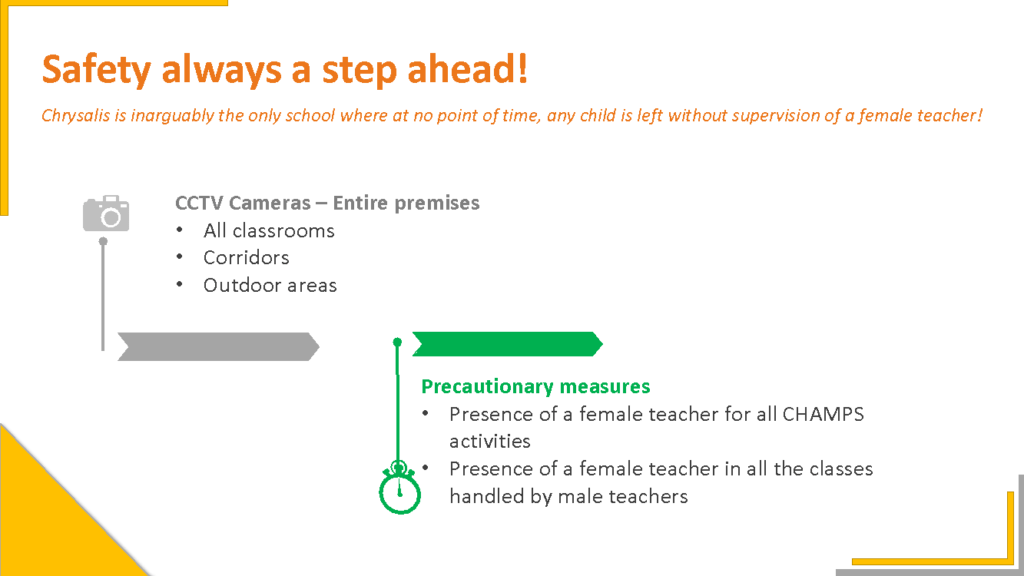The schools are actively promoting healthy lifestyles by implanting wellness into education, promoting a holistic student experience. Through innovative initiatives, they inspire balanced living, emphasising physical fitness, mental well-being, and nutritional awareness. From including exercise programs and mindfulness practices to offering nutritious meals, schools champion a bold approach to health. This holistic education model not only enhances academic performance but also develops habits that support lifelong well-being. By prioritising students’ physical and mental health, schools are laying the foundation for a future generation that values and prioritises a healthy, well-rounded lifestyle.
Understanding the Role of Schools in Promoting Healthy Lifestyles

Schools play a key role in shaping kid’s health habits and promoting healthy lifestyles. As powerful environments, they provide a structured platform for planting good habits early on. Schools can impart essential knowledge on nutrition, physical activity, and mental well-being, fostering a holistic approach to health. Teachers serve as role models, guiding students towards making informed choices.
The unique position of schools lies in their ability to reach a broad audience consistently. By incorporating health education into the curriculum, schools can create a foundation for lifelong well-being. Early health education provides children with the knowledge and skills to make healthy choices, reducing the risk of regular diseases in adulthood.
- Establishing Healthy Habits: Early health education helps children develop healthy habits from a young age, laying the foundation for a lifelong commitment to well-being.
- Prevention of Health Issues: Education on nutrition, exercise, and hygiene reduces the risk of future health problems, promoting a proactive approach to preventing illnesses.
- Improved Academic Performance: Healthy students tend to have better concentration and cognitive function, leading to improved academic performance and long-term educational success.
- Social and Emotional Well-being: Learning about mental health and emotional well-being early on promotes strength, coping skills, and positive social relations, contributing to a healthier overall lifestyle.
- Reduced Healthcare Costs: By instilling healthy behaviours, early health education can lower healthcare costs in the long run, as individuals are less likely to face chronic diseases associated with poor lifestyle choices.
- Enhanced Productivity in Adulthood: Healthy habits acquired in childhood often continue into adulthood, resulting in a more productive and engaged workforce, positively impacting the economy.
- Community Health Improvement: Educated individuals contribute to a healthier community, creating a positive ripple impact on societal well-being and reducing the burden on public health systems.
- Increased Longevity: Early health education may contribute to a longer, more active life by promoting habits that support overall physical and mental health.
- Healthy Family Dynamics: Children who learn about healthy living often influence their families, creating a ripple effect that extends to parents, siblings, and even extended family members.
Life Satisfaction: Understanding the importance of a healthy lifestyle fosters a sense of control over one’s well-being, leading to increased life satisfaction and a higher quality of life in the long term.
Importance of Nutrition Education in School Curriculums
Nutrition education holds essential importance in school curriculums as it greatly influences students’ food choices, promoting lifelong habits that contribute to overall health and well-being. By combining nutrition education into the curriculum, students gain a thorough understanding of the role nutrients play in their bodies, empowering them to make informed decisions about their diet.
Firstly, nutrition education provides students with the knowledge to determine between healthy and unhealthy food choices. This understanding extends beyond the classroom, impacting their dietary selections in various settings. Students are more likely to opt for nutritious options, thereby reducing the prevalence of diet-related health issues such as obesity and diabetes.
Moreover, nutrition education instils a sense of responsibility and freedom in students regarding their dietary habits. As they learn about the importance of balanced meals, essential nutrients, and portion control, students become adept at making conscious choices that align with their long-term health goals. This knowledge not only affects their immediate food choices but influences their lifestyle choices well into adulthood.
Incorporating nutrition education into school curriculums not only manages the immediate health concerns of students but also contributes to the broader societal goal of promoting a healthier population. It serves as a foundational element in shaping a generation that values and prioritises nutrition, thereby fostering a culture of wellness and preventing a myriad of health issues associated with poor dietary choices.
Physical Education and Active Lifestyles
Importance of Regular Physical Activity for Students:
- Physical Health Benefits:
- Enhances cardiovascular health and reduces the risk of chronic diseases.
- Promotes healthy growth and development, including bone density and muscle strength.
- Aids in weight management and reduces the likelihood of obesity.
- Mental Well-being:
- Releases endorphins, donating to improved mood and reduced stress.
- Enhances cognitive function, concentration, and academic performance.
- Helps in the prevention and management of mental health issues like anxiety and depression.
- Social Development:
- Fosters teamwork, communication, and cooperation through team sports and group activities.
- Encourages the development of interpersonal skills and positive relationships among peers.
- Provides opportunities for leadership and collaboration.
- Lifelong Habits:
- Establishes a foundation for a healthy and active lifestyle into adulthood.
- Teaches time management skills as students balance academic and physical activities.
- Reduces the risk of passive behaviour-related health problems later in life.
Innovative Physical Education Programs and Their Outcomes:
- Exergaming:
- Incorporates interactive video games that require physical movement.
- Improves coordination, balance, and cardiovascular fitness.
- Engages students who may be less interested in traditional sports.
- Adventure Education:
- Introduces outdoor activities like rock climbing, hiking, and orienteering.
- Enhances problem-solving skills, risk management, and resilience.
- Fosters a connection with nature and appreciation for the environment.
- Yoga and Mindfulness:
- Combines yoga and mindfulness practices into physical education.
- Enhances flexibility, balance, and mental focus.
- Supports emotional regulation and stress reduction.
- Inclusive Sports Programs:
- Adapts activities to accommodate students of all abilities.
- Promotes inclusivity, compassion, and a sense of belonging.
- Builds awareness and acceptance of diversity.
- Community Engagement Industries:
- Collaborates with local communities for sports events and fitness programs.
- Strengthens community bonds and encourages a sense of civic responsibility.
- Provides real-world applications for physical activity beyond the school setting.
- Technology Integration:
- Utilises fitness trackers and apps to monitor and motivate physical activity.
- Incorporates virtual reality for immersive and interactive physical experiences.
- Enhances data-driven feedback for personalised fitness goals.
Mental Health and Wellness

The escalating concern about mental health among students demands urgent attention and proactive measures. The academic environment, coupled with societal pressures and the challenges of youth, has contributed to a surge in mental health issues. Realizing this, educational institutions must prioritise the well-being of their students.
Implementing comprehensive mental health programs that include counselling services, awareness campaigns, and stress-management workshops is imperative. Exposing mental health discussions and promoting an environment where students feel comfortable seeking help is crucial. Collaboration between educators, parents, and mental health professionals can create a support network to identify early signs of distress and provide timely intervention.
Moreover, integrating mindfulness practices into the curriculum can empower students with tools to manage stress and build resilience. Encouraging a healthy work-life balance and promoting extracurricular activities can contribute to a more holistic approach to education. It is essential to prioritise mental health as a foundational component of a student’s overall well-being, believing that academic success is linked to emotional and mental stability.
In nature, addressing the growing concern of mental health among students requires a collective effort to create nurturing environments that prioritize mental wellness alongside academic achievement.
Parental and Community Involvement in Supporting Health Initiatives
- Setting a Positive Example:
Parents serve as role models for their children by showcasing healthy habits in their own lifestyle choices, such as maintaining a balanced diet, regular exercise, and stress management.
- Educational Support:
The involvement of parents in health initiatives includes educating children about the importance of nutritious food, proper hygiene, and the benefits of regular physical activity.
- Meal Planning and Preparation:
Parents play an important role in planning and preparing nutritious meals for the family, ensuring that children have access to a well-balanced diet that supports their overall health and development.
- Active Lifestyle Encouragement:
Parents can encourage physical activity by engaging in family exercises, outdoor activities, or sports, creating a positive association with staying active and maintaining a healthy lifestyle.
- Limiting Screen Time:
Monitoring and controlling screen time is a significant aspect of parental involvement, as excessive screen time can contribute to sedentary behaviour and impact overall health negatively.
- Emotional Well-being Support:
Parents contribute to their children’s emotional well-being by encouraging open communication, providing a supportive environment, and helping them cope with stress, which is essential for overall mental health.
- Establishing Routine Health Check-ups:
Parents are responsible for scheduling and ensuring regular health check-ups for their children, monitoring growth, and addressing any health concerns promptly.
- Promoting Healthy Snacking:
Parents can influence their children’s eating habits by offering nutritious snacks and limiting the availability of unhealthy options, promoting a culture of mindful eating.
- Reinforcing Proper Hygiene Practices:
Teaching and supporting good hygiene practices, such as handwashing and dental care, are essential aspects of parental involvement that contribute to overall health and prevent the spread of illness.
- Communication with School and Community:
Parents can actively engage with schools and communities to support health initiatives by participating in programs, attending workshops, and collaborating with educators to create a holistic approach to health education.
- Creating a Supportive Home Environment:
Establishing a positive and supportive home environment where healthy choices are encouraged fosters a mindset that values and prioritises well-being.
- Monitoring and Limiting Unhealthy Habits:
Parents can monitor and limit the consumption of sugary drinks, fast food, and other unhealthy habits, promoting a lifestyle that prioritises long-term health benefits.
- Celebrating Milestones and Progress:
Recognizing and celebrating achievements related to health and well-being reinforces positive behaviours, motivating children to continue making healthy choices.
- Inclusion of Extended Family and Community:
Extending the involvement to extended family and the broader community ensures a comprehensive and supportive network that reinforces the importance of health initiatives.
- Adaptability and Flexibility:
Parents should adapt to the changing needs of their children, considering age-specific health requirements and adjusting strategies to accommodate evolving lifestyle demands.
Preparing Students for Long-Term Healthy Living Beyond School
To prepare students for lifelong health, fostering habits extending beyond school is vital. Besides traditional subjects, prioritise comprehensive health education covering nutrition, physical fitness, and mental well-being. Cultivate critical thinking around media messages, enabling informed food choices. Instill practical skills like meal preparation and stress management. Emphasise the importance of regular exercise, offering diverse activities for enjoyment. Foster strength, self-awareness, and coping strategies to navigate life’s challenges. By integrating holistic health education, students gain the knowledge and skills necessary for sustained well-being, ensuring they approach adulthood equipped to make informed, health-conscious choices for a balanced and fulfilling life.
Conclusion: The Future of Health Education in Schools
In conclusion, the future of health education in schools is marked by dynamic growth and transformation to contemporary challenges. Emerging trends emphasise a holistic approach, integrating mental health awareness, digital literacy, and personalised well-being programs. However, challenges include staying abreast of rapidly advancing health information and ensuring inclusivity in education. Schools must navigate the delicate balance of technology integration while fostering interpersonal skills. As we move forward, collaboration between educators, health professionals, and policymakers becomes key to cultivating a complete and responsive health education curriculum that provides students with the skills needed to navigate the problem of well-being in an ever-changing world.
For more enriching stories and educational insights, explore Chrysalis High.


